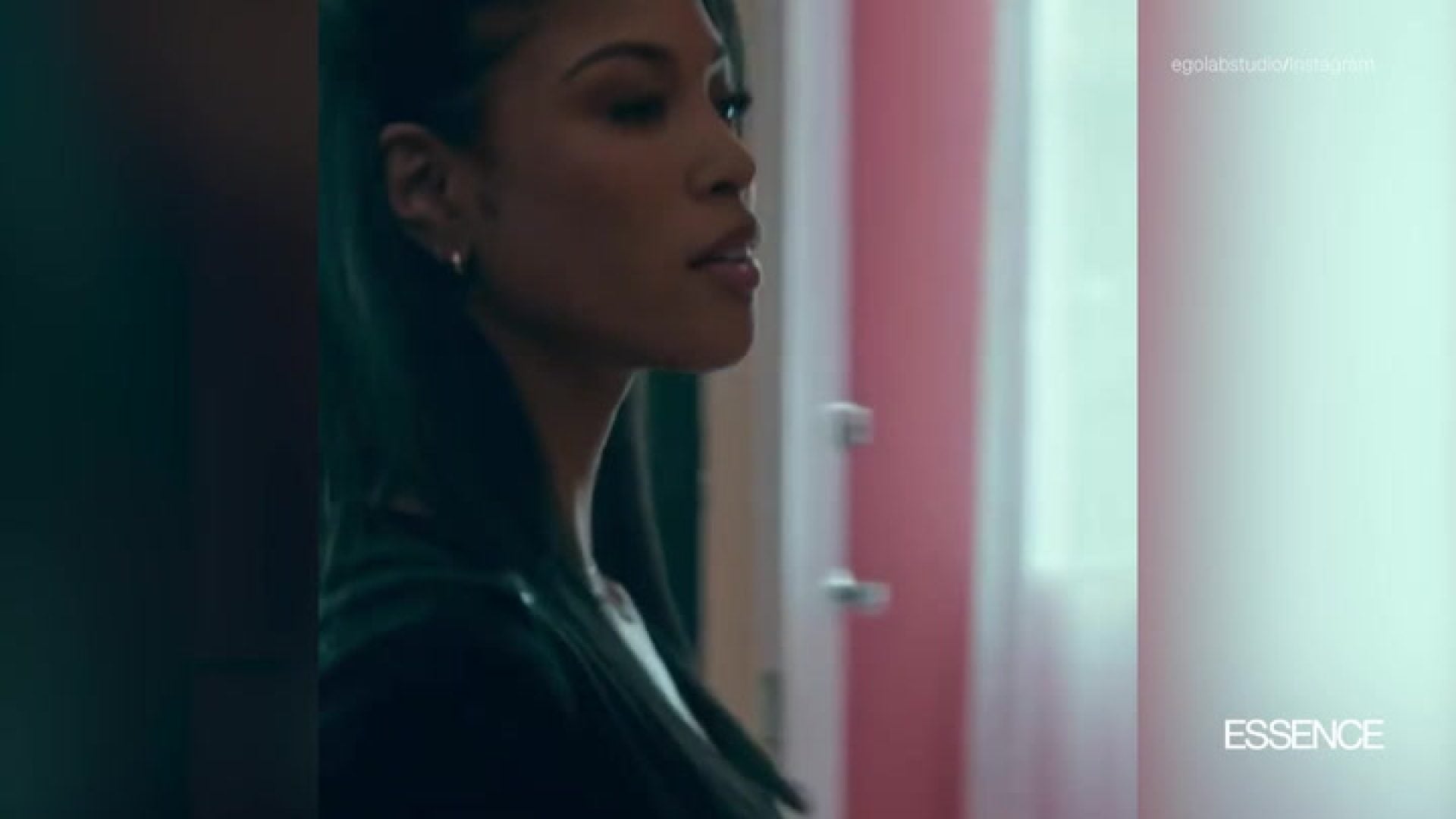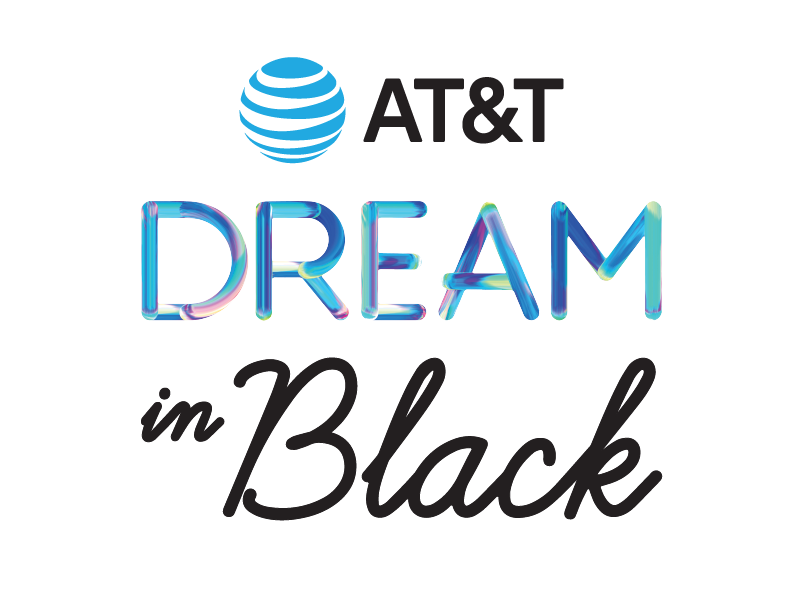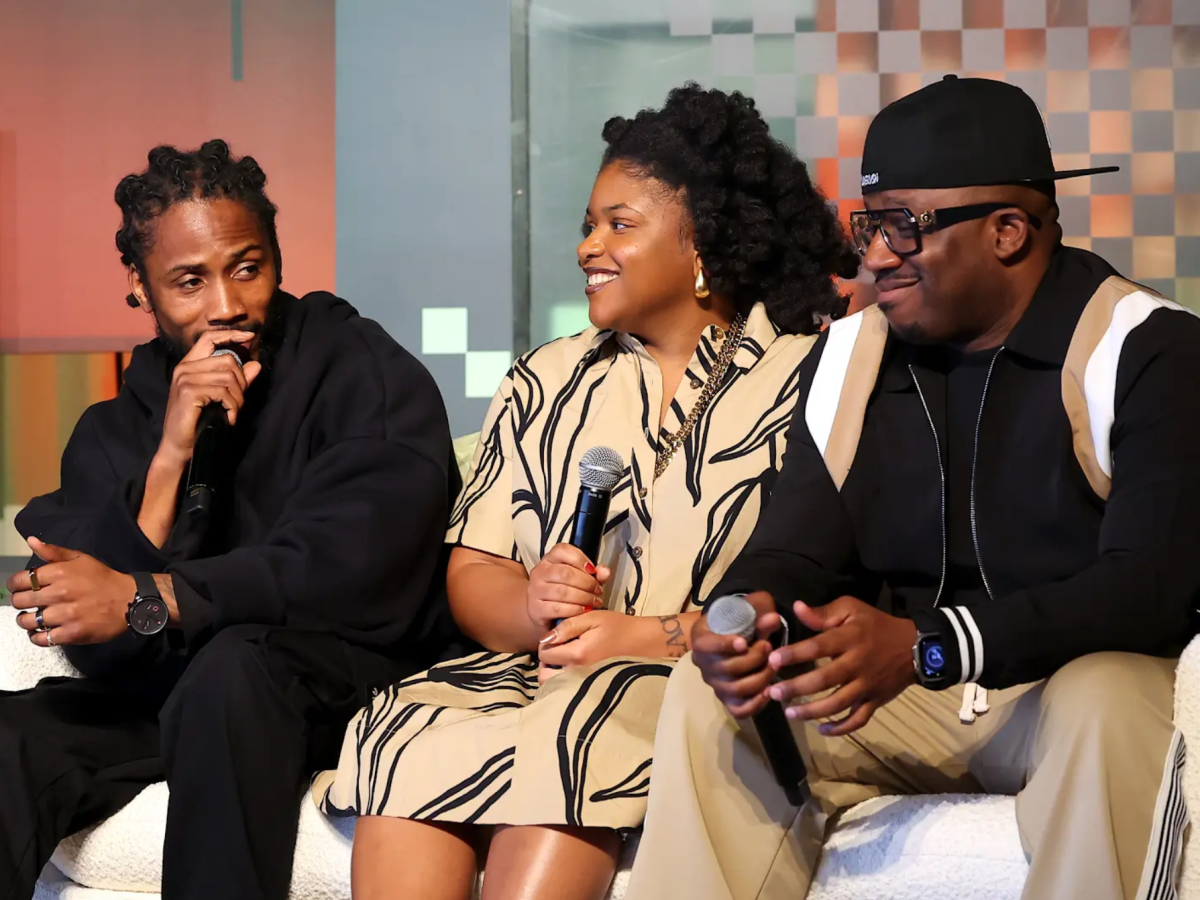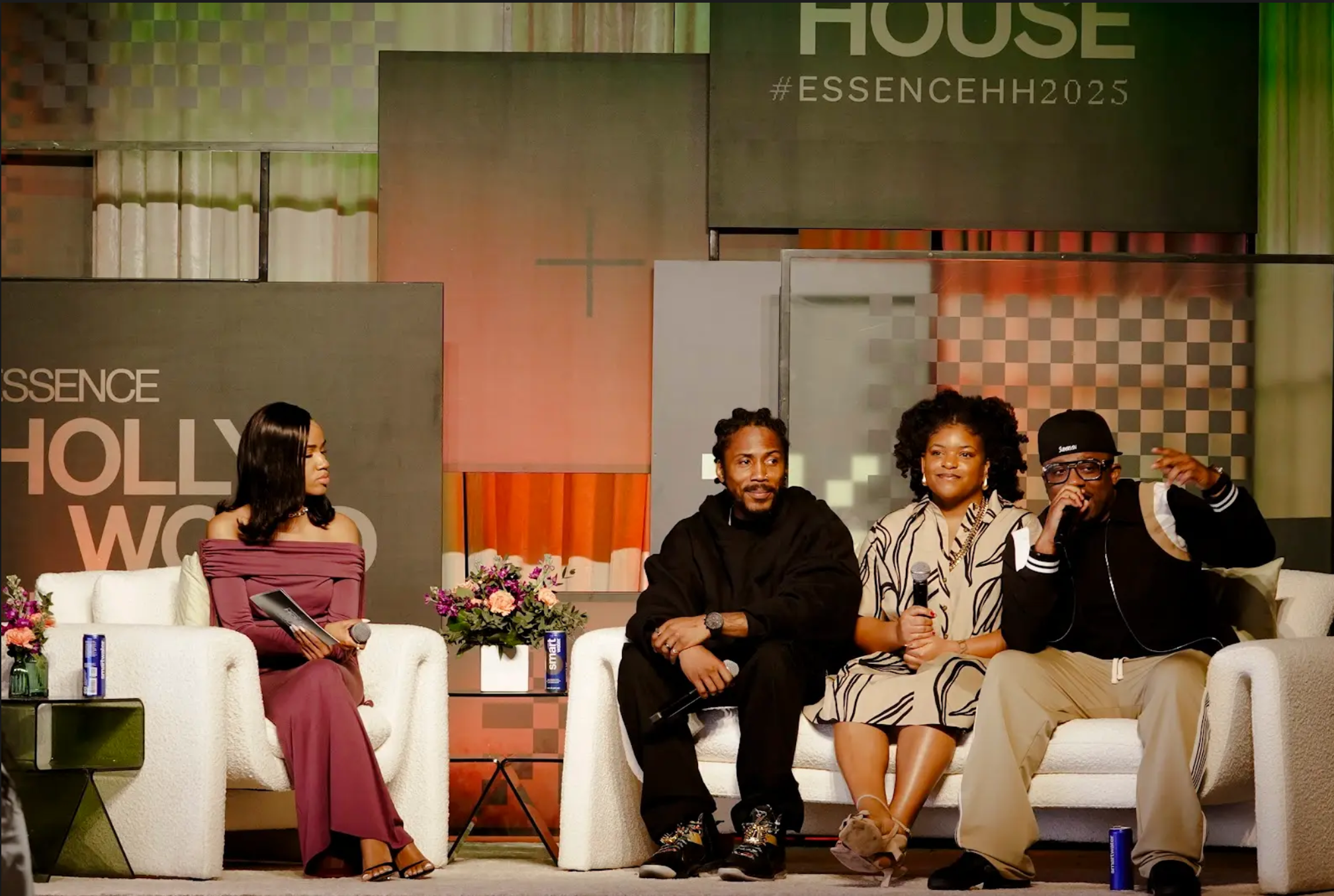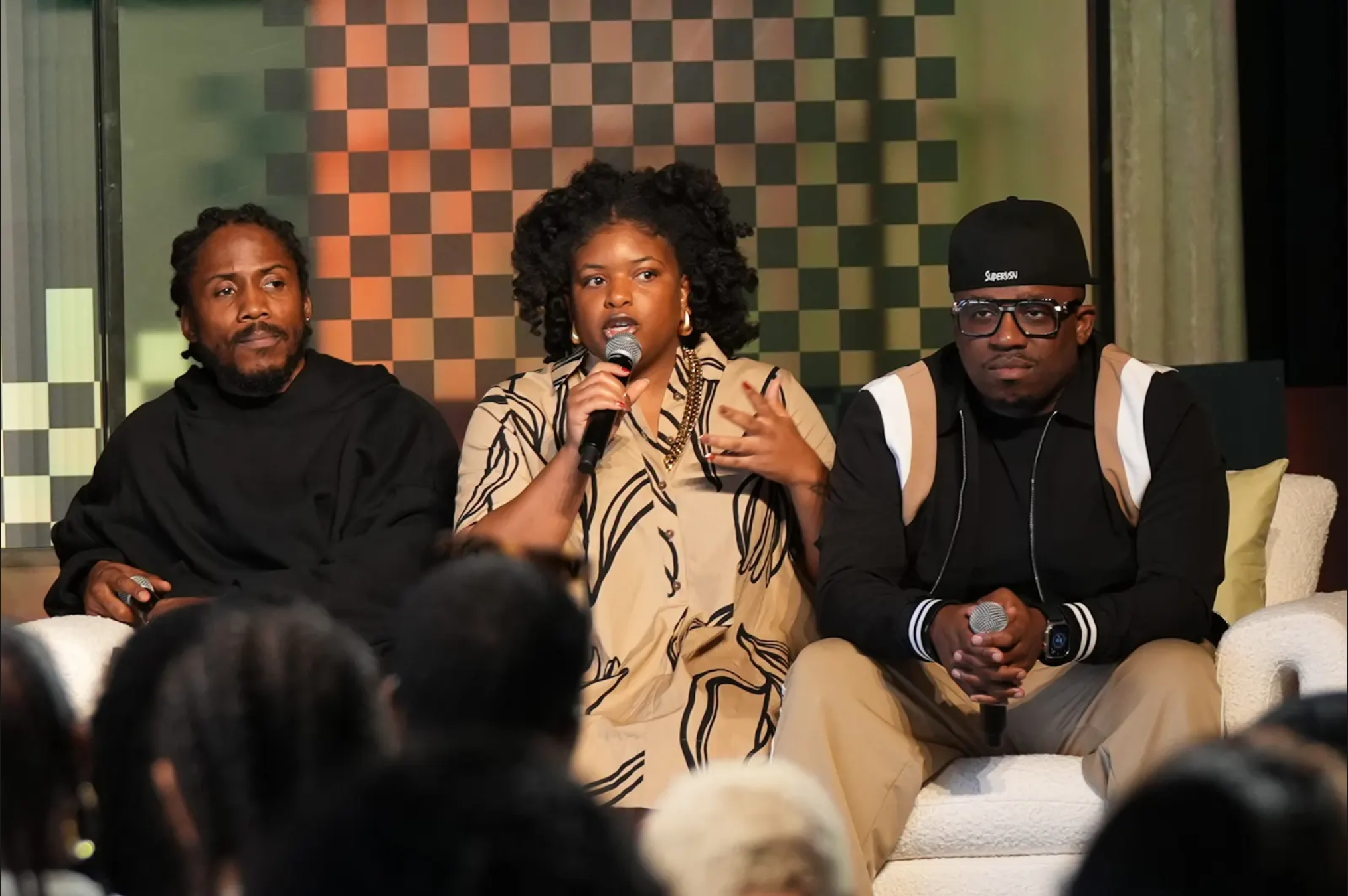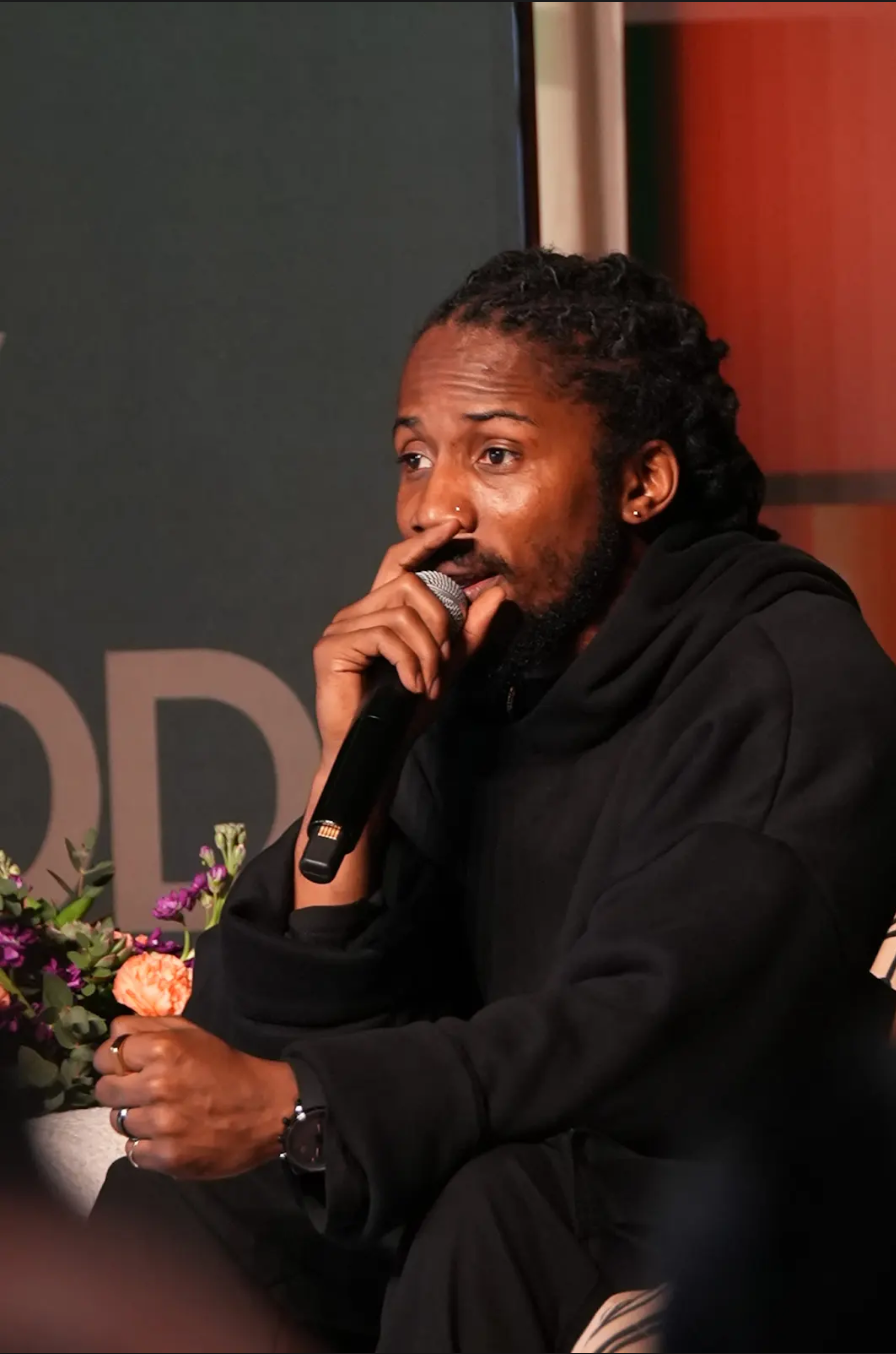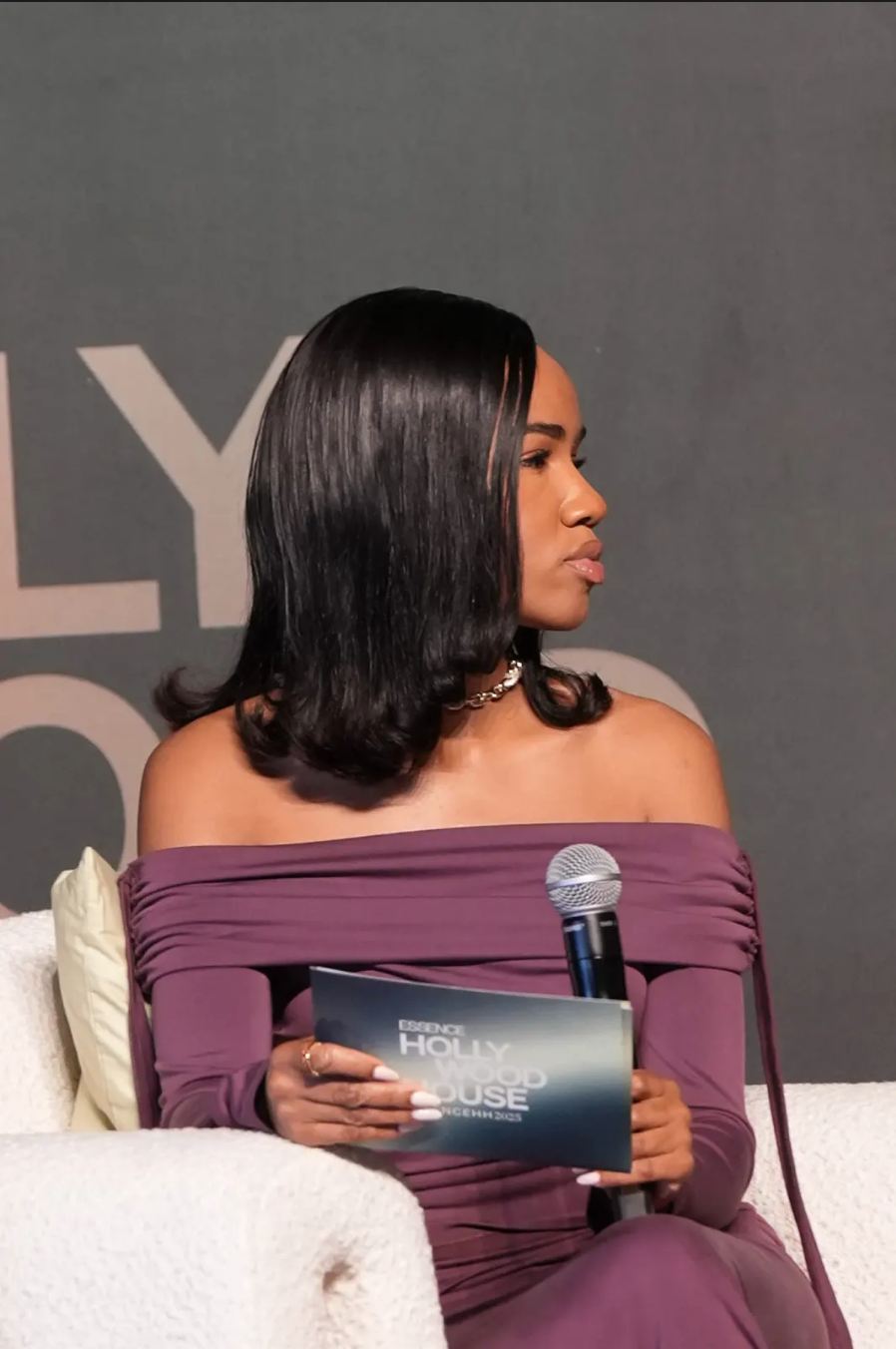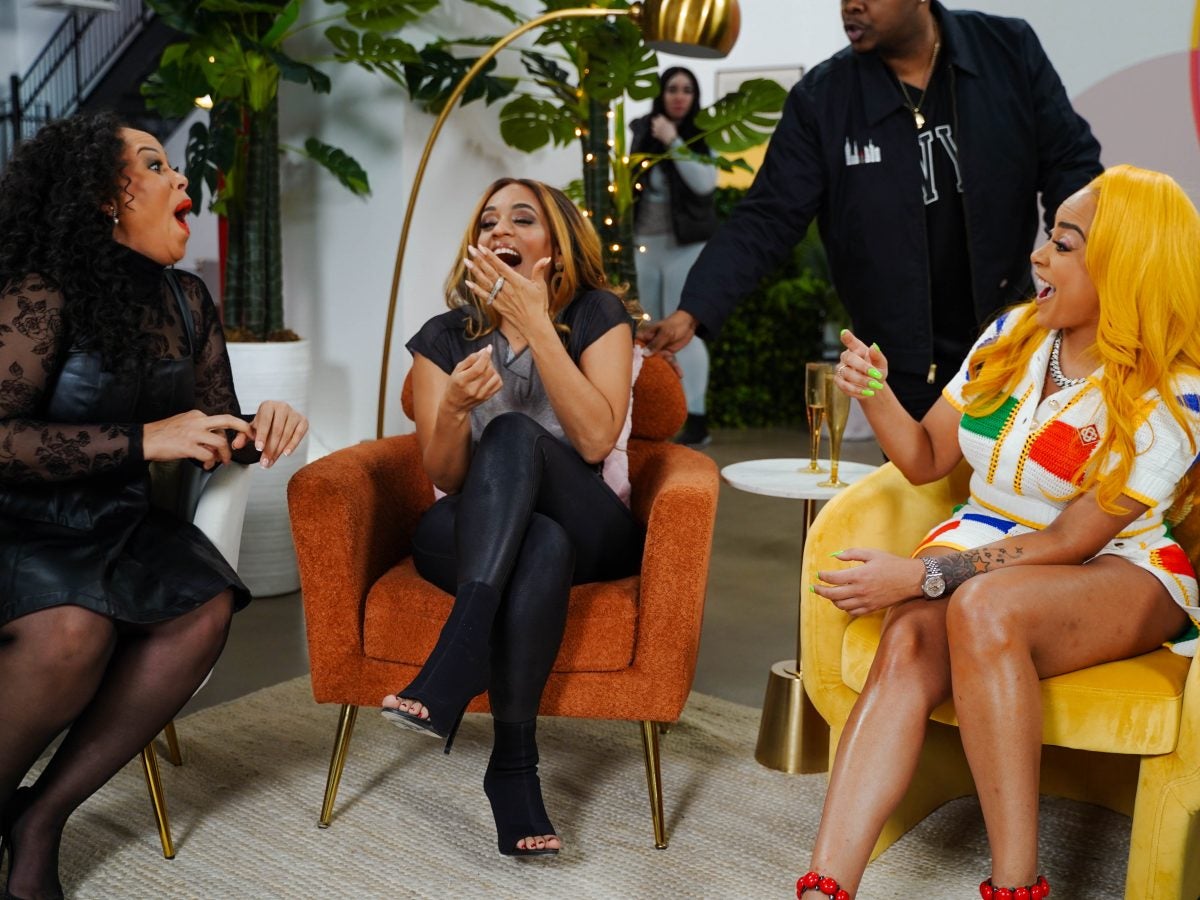
Listen To Black Women is back for a fourth season of shared experiences, opposing opinions, and sisterhood. New faces are joining the lineup, including recurring guest actress and media personality Melyssa Ford, who found common ground with The Morning Hustle Lore’l dishing in close quarters.
“It endears you to people that you might have not known anything about and just, you know, kind of regarded with a hey, hey, girl in the past,” said Ford. “We have a whole lot more similarities than I ever would have thought we did.”
The women overcame preconceptions about their personalities and enjoyed one another’s company. It was a chance to get to know the people behind the reputations. “We kind of could judge from what we’ve heard other people say or what the persona is of the person to the point where you’re not even listening to them,” said Lore’l.
Ford, a co-host on The Joe Budden Podcast, found healing in the all-female panel after spending time in one of the most charged-up boys clubs on the internet. “It felt so cathartic to be around women, to be able to speak and feel seen and heard and related to,” she said.
“It’s food for the soul,” said Lore’l about the show. She is a returning co-host and loves how the environment differs from the couches full of frenemies that routinely go viral. “I see a lot of shows that come out, and it’s a lot of underlying shade or backhanded compliments,” she said.
Lore’l explained that there was “not one time” on the show that she felt a peer was trying to get slick or throw her under the bus in search of a shrewd soundbite. It’s an example of a model that’s engaging but not volatile. “You can have dialogue and discourse without there being a sense of combativeness,” declared Lore’l.
They were comfortable chatting with actress Tahiry Jose, HelloBeautiful Managing Editor Shamika Sanders, Former ESSENCE Deputy Editor Cori Murray, and more on set because they trusted MadameNoire. There was no need to water down their messaging or translate their perspectives. The people behind the camera understood them.
“It’s great to be able to have all Black women on the production team,” added Lore’l. “That’s very important. All the top executives over there are Black women.” Being surrounded by those who valued her point of view inspired Lore’l to open up when she wasn’t expecting to. “There were times where I thought like, okay, well, this is going to be light-hearted, and I was bawling my eyes out to the point where I had to get my makeup done,” she revealed. At other times, she wrecked her fresh beat due to evidence of her “crying tears of joy.”
“This is a safe space,” Lore’l continued. “People say it’s a safe space, but it’s never safe. But this one is truly safe for you to be able to come and talk about your experiences.”
She pointed out the lack of true dialogue in a culture obsessed with spilling one hot take after another. “I don’t think we do a good job at listening to each other. I think sometimes we are waiting for the person to be done talking so that we could say how we feel,” she said. “We have to not only give out information but receive it in order to be better people.” It reassured Ford “to be able to feed, to be able to feel safe enough, to have those kinds of discussions that sometimes might be stigmatized and hear from others that they’re going through the exact same thing.”
The two bonded with Naturi Naughton, Elle Varner, Eboni K. Williams, and more over being veterans in a landscape that has not always amplified the comforts and concerns of Black women. “We’ve been in this industry for, you know, a fairly long time, we’re all you know, fast approaching our 40s so our outlook on life is rapidly changing,” Ford continued.
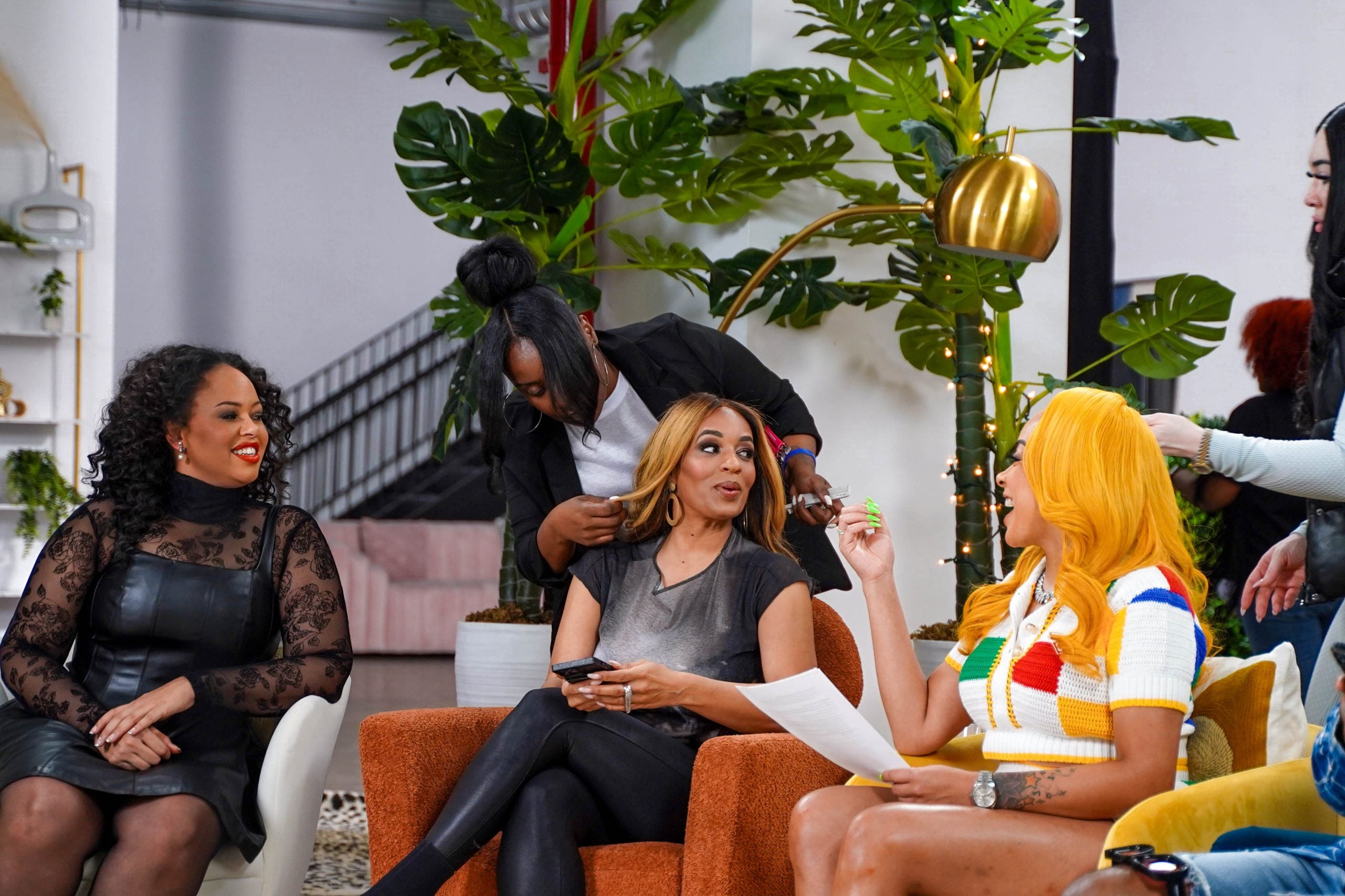
As an only child who has been open about struggling with the loss of her mother, she cherished their exchanges. They talked about their upbringings, personal experiences, and more on set.
The first episode focused on the idea of a woman’s worth. The second tapped into gender roles. Viewpoints clashed, but the respect level was consistent.
“To be able to feel safe enough, to have those kinds of discussions that sometimes might be stigmatized and hear from others that they’re going through the exact same thing and maybe they’re ahead in their journey, and they have advice for you, it just feels like you’re just being enveloped in warmth and love and companionship,” said Ford.

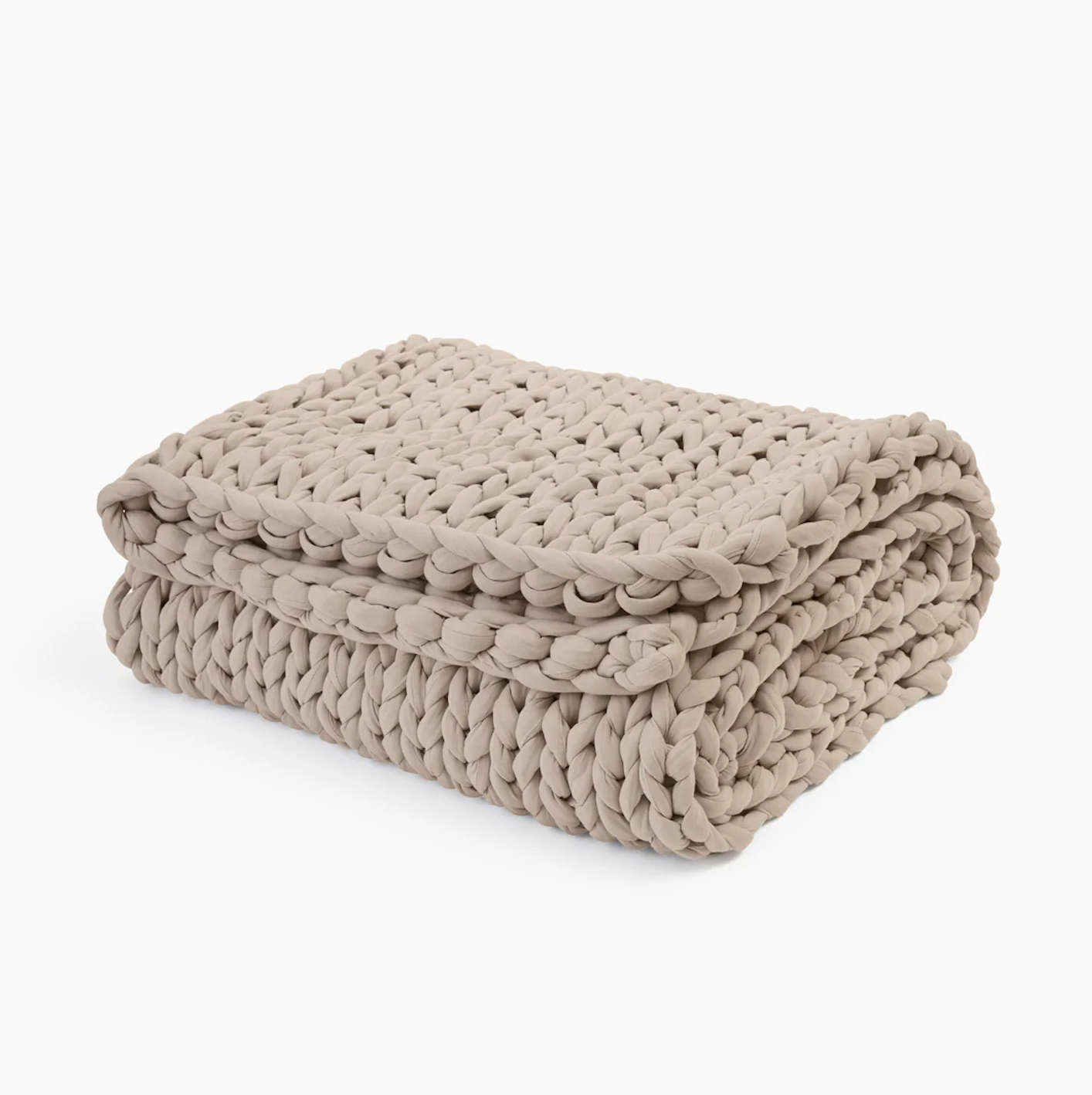
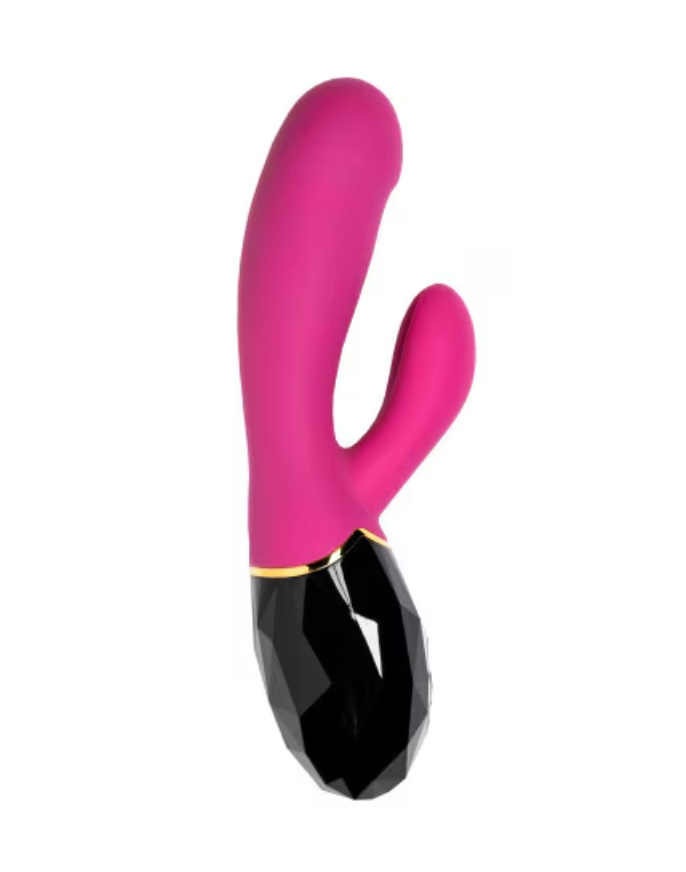
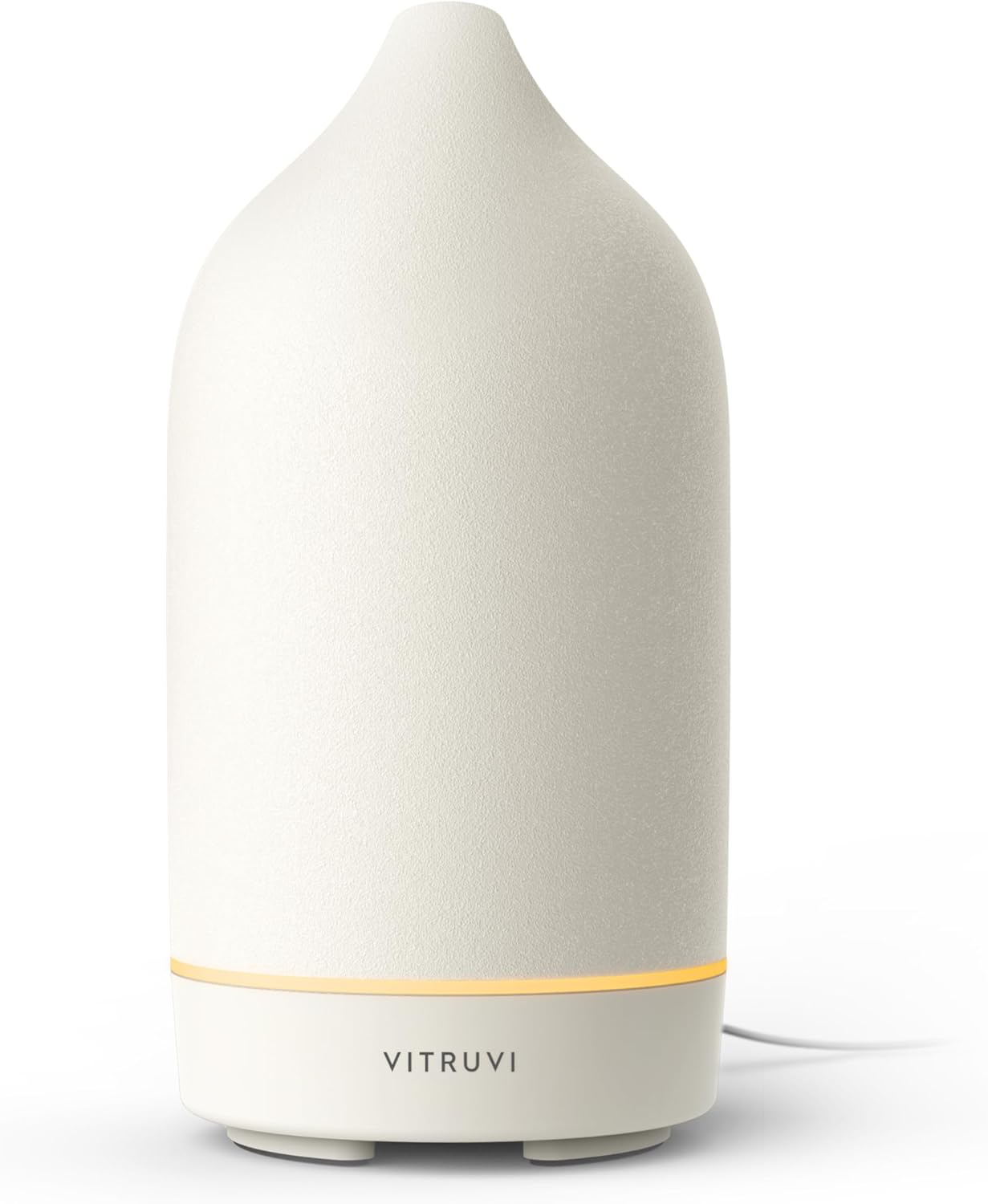
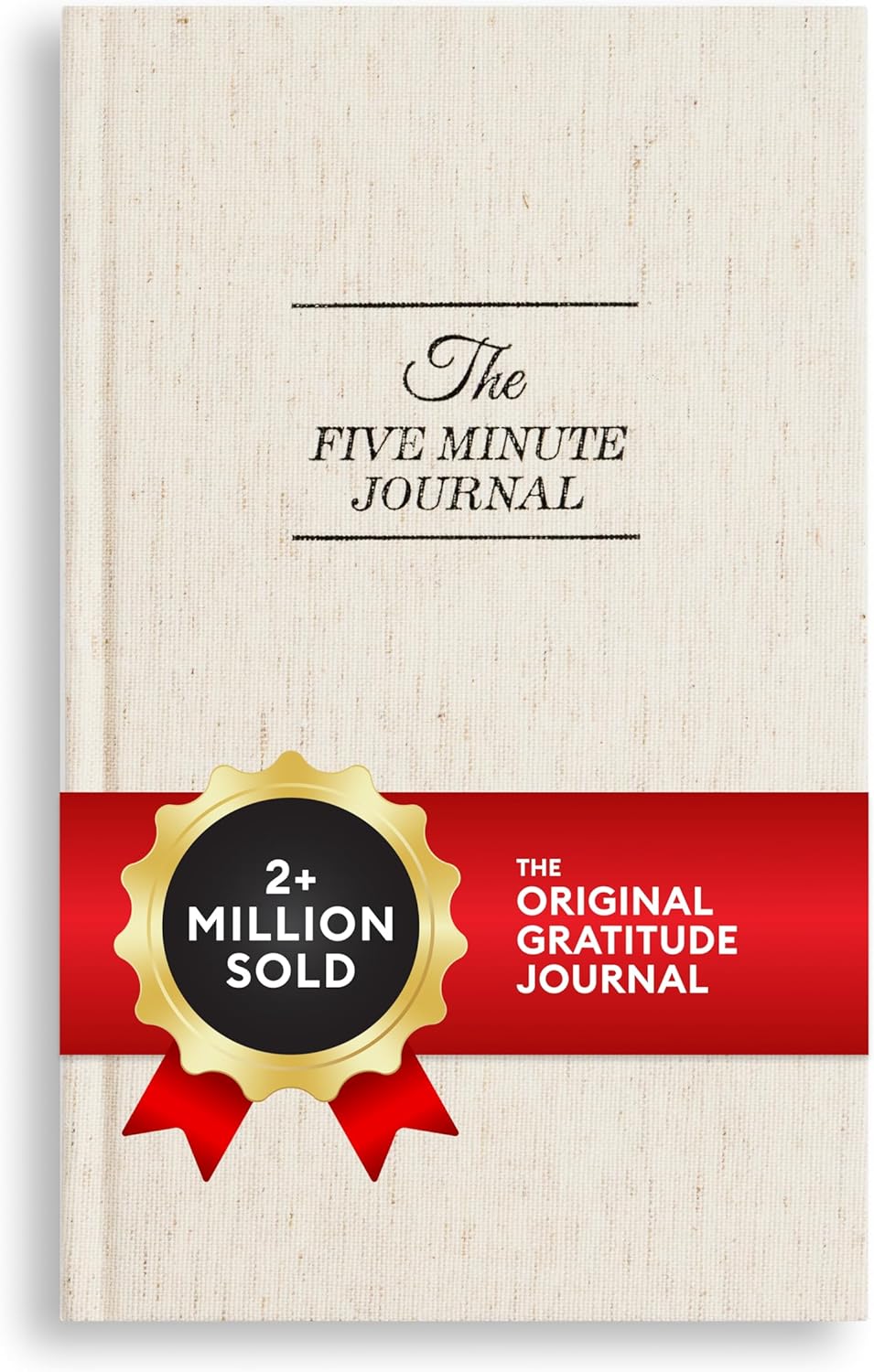
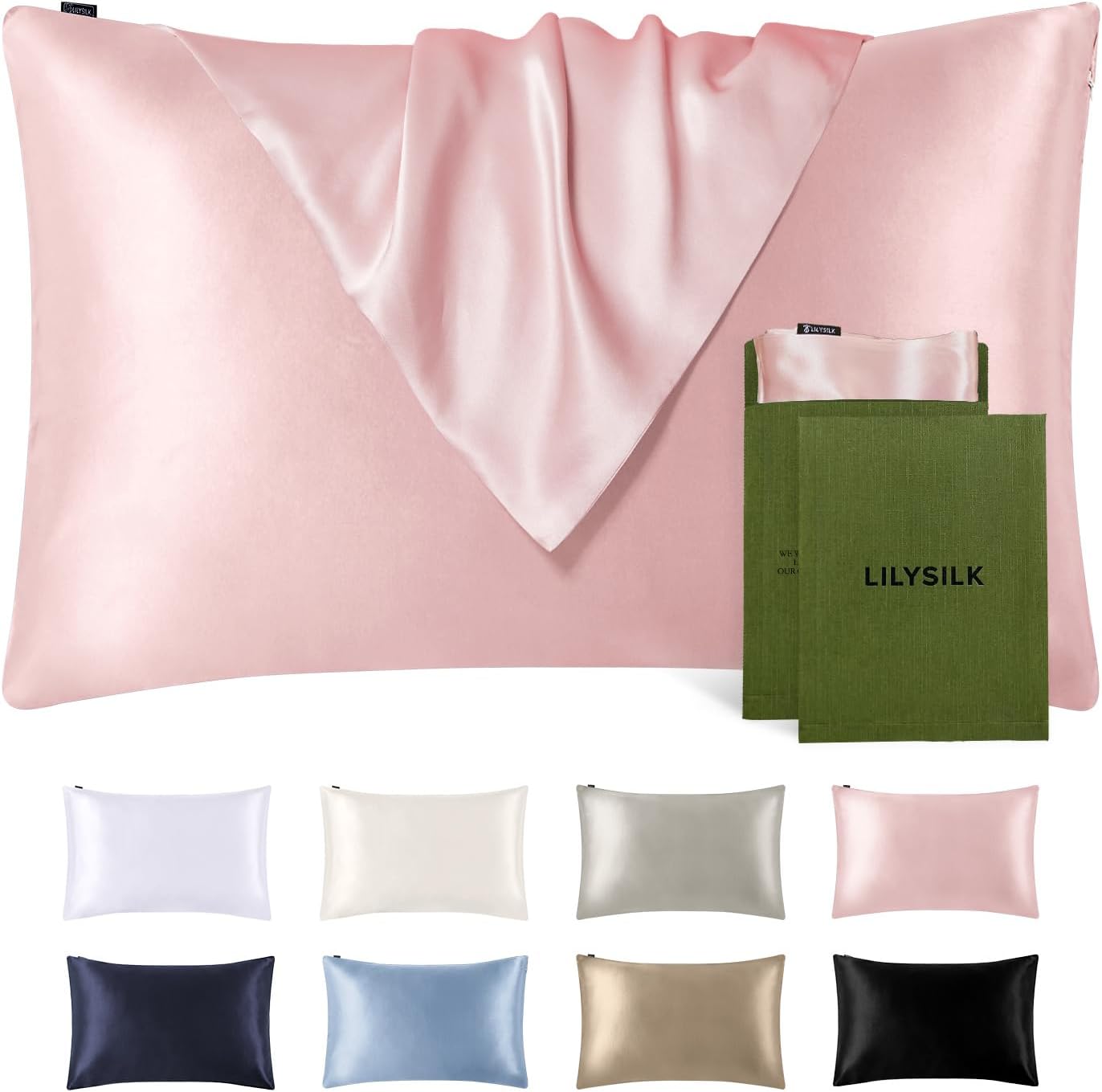

Lore’l loved being in a space where her well-meaning bluster was welcome. She has been known to say what’s on her mind in defense of herself and others. If there’s a snake afoot, her tongue starts swinging. “I never hold back, and sometimes that’s a flaw in certain spaces, but in this space, it’s actually a plus,” she said. Ford is learning to fight through her urges to silence herself the way she did on the set of the big-budget videos that propelled her to fame. “I’ve always been kind of like a diplomacy artist,” she said.
Lore’l empathizes with those who face judgment for their controversial opinions. “I think we should listen to all kinds of Black women, but even the ones that we may not agree with,” said Lore’l.
“We’re not just one kind of person.”Season four of Listen to Black Women is now streaming.




